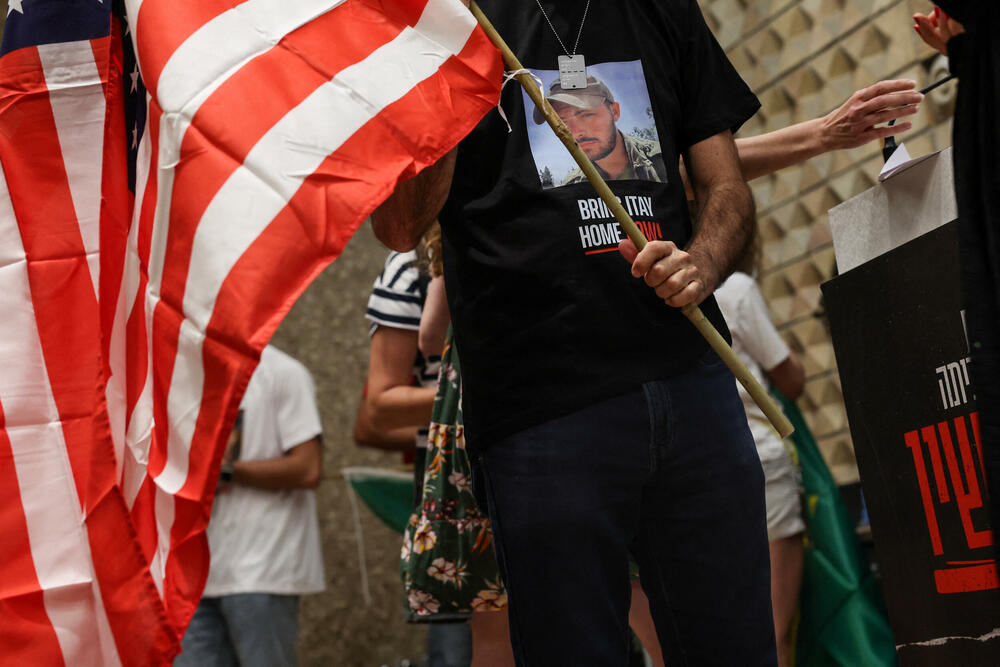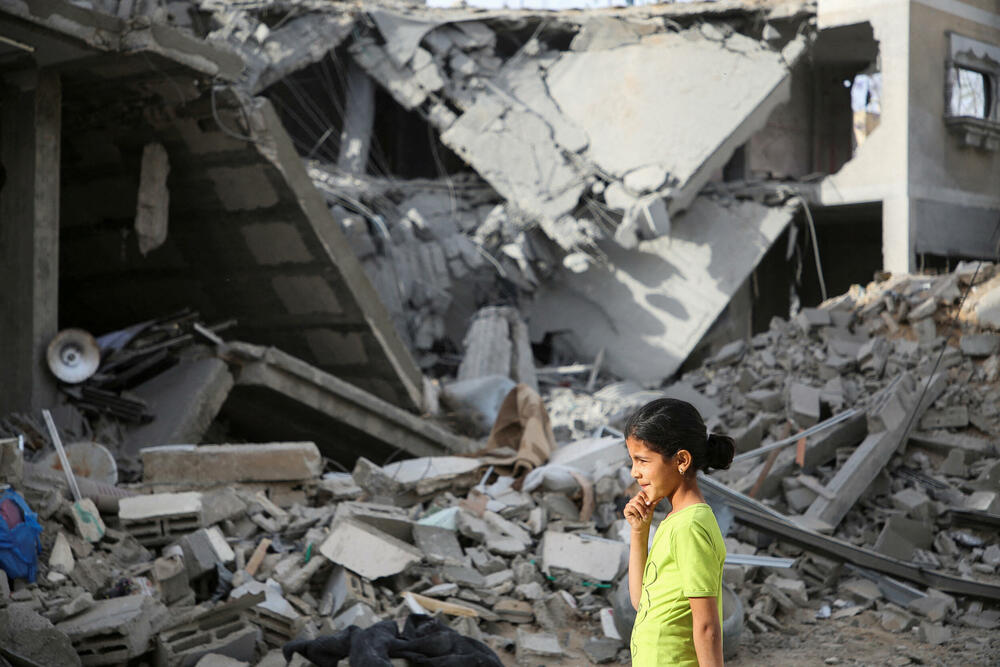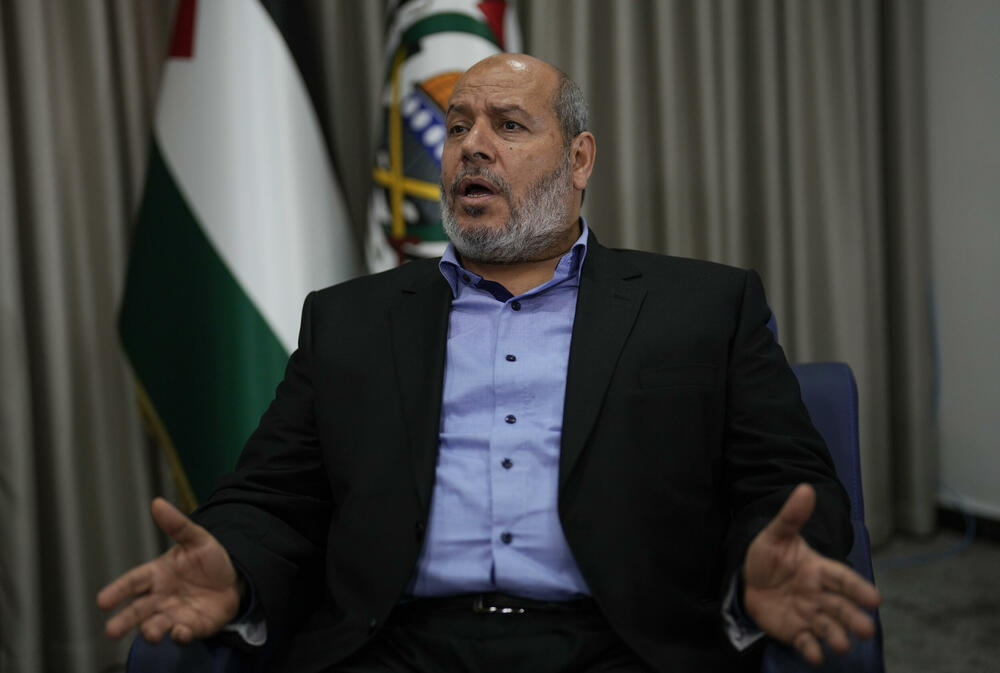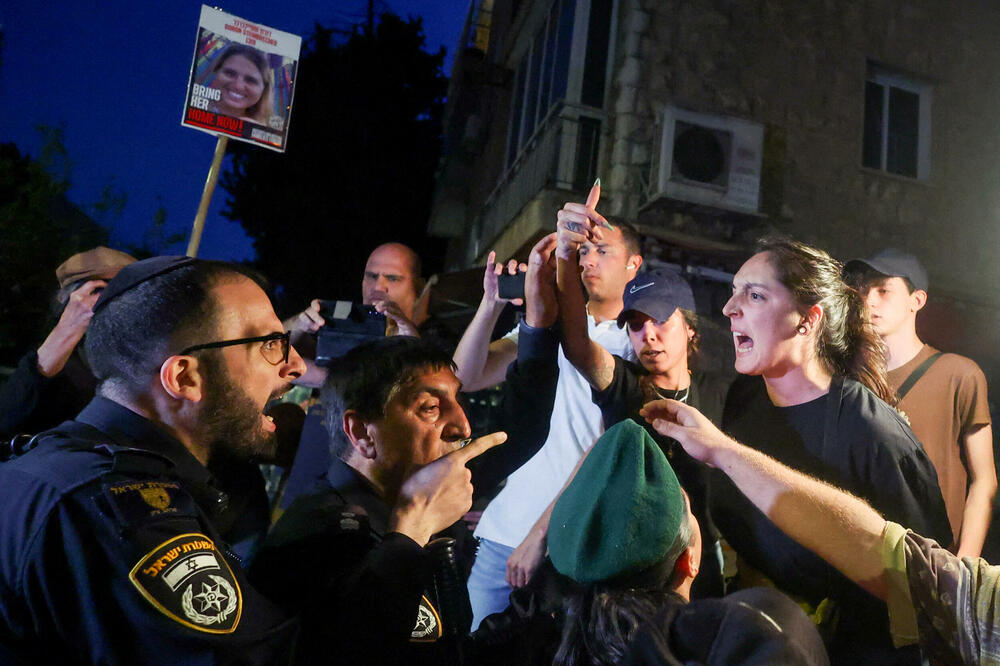The United States of America and 17 other countries yesterday called on Hamas to release all hostages as a way to end the crisis in Gaza, but Hamas said it would not give in to international pressure.
"We call for the immediate release of all the hostages that Hamas has been holding in Gaza for more than 200 days. Among them are citizens of our countries. The fate of the hostages and the civilian population in Gaza, who are protected by international law, is of concern to the international community," the joint statement said. announcement, which a senior US official called an extraordinary show of unity.
The Palestinian militant group took 253 hostages on October 7 in an attack on southern Israel that killed 1.200 people. Hamas is believed to still be holding 129 hostages.
The text emphasizes that "a deal on the release of the hostages would bring about an immediate and extended ceasefire in Gaza, which would allow for the delivery of additional much-needed humanitarian aid to be delivered throughout Gaza and lead to a reliable end to hostilities," and "Gaza residents would be able to return to their homes and properties with previously completed preparations for providing shelter and humanitarian aid".
Hamas holds citizens of all 18 countries that signed the appeal - Argentina, Austria, Brazil, Bulgaria, Canada, Denmark, France, Germany, Hungary, Poland, Portugal, Romania, Serbia, Spain, Thailand, the United Kingdom and the USA.

One of the leaders of Hamas, Sami Abu Zuhri, told Reuters that the announcement would not affect Hamas and that the US must force Israel to end its aggression.
"The ball is now in America's court," Abu Zuhri said.
A senior US official told reporters that there were some indications that there might be a possibility of a deal on the hostage crisis, but that he was not completely sure.
He did not elaborate, but said the solution depended on "one man," the leader of Hamas in Gaza, Yahya Sinwar.
The hostage proposal put forward earlier this year calls for the release of sick, elderly and wounded hostages in Gaza in exchange for a six-week ceasefire that could be extended to allow additional humanitarian aid to be delivered to the enclave.
It allows the unrestricted return of Gazans to the north of the enclave, the official said.
Hamas would lay down its arms if a Palestinian state is established
A senior Hamas official, Khalil al-Haya, told The Associated Press (AP) that the group is ready to sign a truce of five years or more with Israel and will lay down its arms and turn into a political party if an independent Palestinian state is established along the borders of before 1967.
The idea of disarming Hamas would represent a significant concession by the militant Palestinian group whose official goal is the destruction of Israel.
However, according to AP, it is unlikely that Israel would even consider such a scenario. He vowed to destroy Hamas after the October attacks that started the war, and Israel's current government categorically opposes the establishment of a Palestinian state in territories captured by Israel in the 1967 war.

Speaking to the AP in Istanbul, Al-Haja said Hamas wants to join the Palestine Liberation Organization, led by rival Fatah, to form a unified government in Gaza and the West Bank. He said Hamas would accept "a fully sovereign Palestinian state in the West Bank and Gaza Strip and the return of Palestinian refugees in accordance with international resolutions," along Israel's pre-1967 borders.
If that happens, he added, the military wing of that organization will be disbanded.
Over the years, Hamas has sometimes softened its public stance on the possibility of a Palestinian state alongside Israel. But his political program still officially "rejects any alternative to the complete liberation of Palestine, from the river to the sea" - referring to the area stretching from the Jordan River to the Mediterranean Sea, which includes the territories that now make up Israel.
Al-Haja did not say whether his purported acceptance of a two-state solution would mean an end to the Palestinian conflict with Israel or a temporary step toward the group's stated goal of destroying Israel.
The Palestinian Authority hopes to establish an independent state in the territories of the West Bank, East Jerusalem and Gaza that Israel seized in 1967. While the international community supports such a two-state solution, the hardline government of Israeli Prime Minister Benjamin Netanyahu rejects it.
Israel's military has stepped up airstrikes on Rafah after announcing it would evacuate civilians from the southern Gaza town and launch an all-out assault despite warnings from allies that it could cause mass casualties.
Netanyahu's war cabinet is holding meetings "to consider how to destroy the last remnants of Hamas battalions, in Rafah and elsewhere," government spokesman David Menser said yesterday.
Israel says it has disbanded most of the original 20 or so Hamas battalions since the start of the war, but that the four remaining are holed up in Rafah. Israel claims that the Rafah offensive is necessary to defeat Hamas.

Al Haja said such an offensive would fail to destroy Hamas. He said that the war has not disrupted contacts between the political leadership outside and the military leadership inside Gaza and that "decisions and instructions are made in consultation" between the two groups.
Israeli forces "did not destroy more than 20 percent of (Hamas') capacities, neither human nor on the ground," he asserted. "If they cannot finish them (Hamas), what is the solution? The solution is to reach a consensus".
Israeli and US officials have accused Hamas of not being serious about the deal, but Al Haya has denied this, saying Hamas has made concessions on the number of Palestinian prisoners it is seeking to release in exchange for the remaining Israeli hostages. He claims that the group does not know exactly how many hostages remain in Gaza and how many are still alive.
However, he said that Hamas will not give up on its demand for a permanent ceasefire and the complete withdrawal of Israeli troops. Israel says it will continue military operations until Hamas is definitively defeated and will maintain a security presence in Gaza thereafter.
"If we are not sure that the war will end, why should I hand over the prisoners?" the Hamas leader said of the remaining hostages.
"They can destroy Hamas, but not the Palestinians"
Al-Haya said Hamas does not regret the October 7 attack, despite the devastation it inflicted on Gaza and its people. He denied that civilians were targeted by Hamas militants - despite overwhelming evidence to the contrary - and said the operation had succeeded in its aim to refocus the world's attention on the Palestinian issue.
And, he said, Israeli efforts to root out Hamas will ultimately fail to prevent future Palestinian armed uprisings.
"Let's say they destroyed Hamas. Did the Palestinian people disappear?" he asked.
Bonus video:




